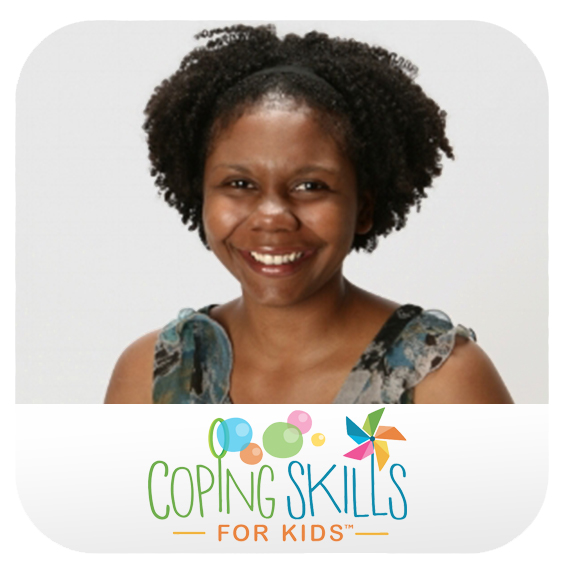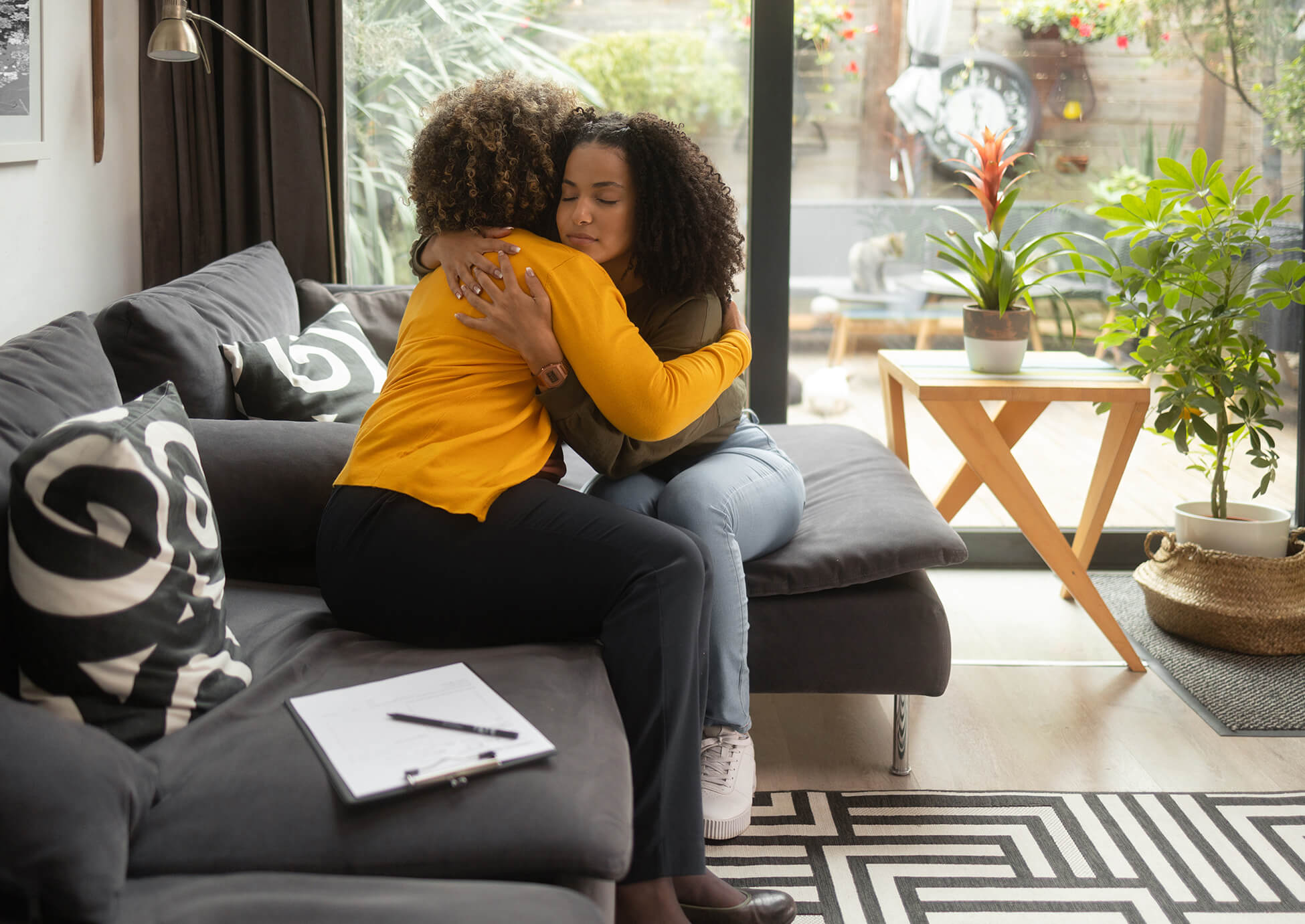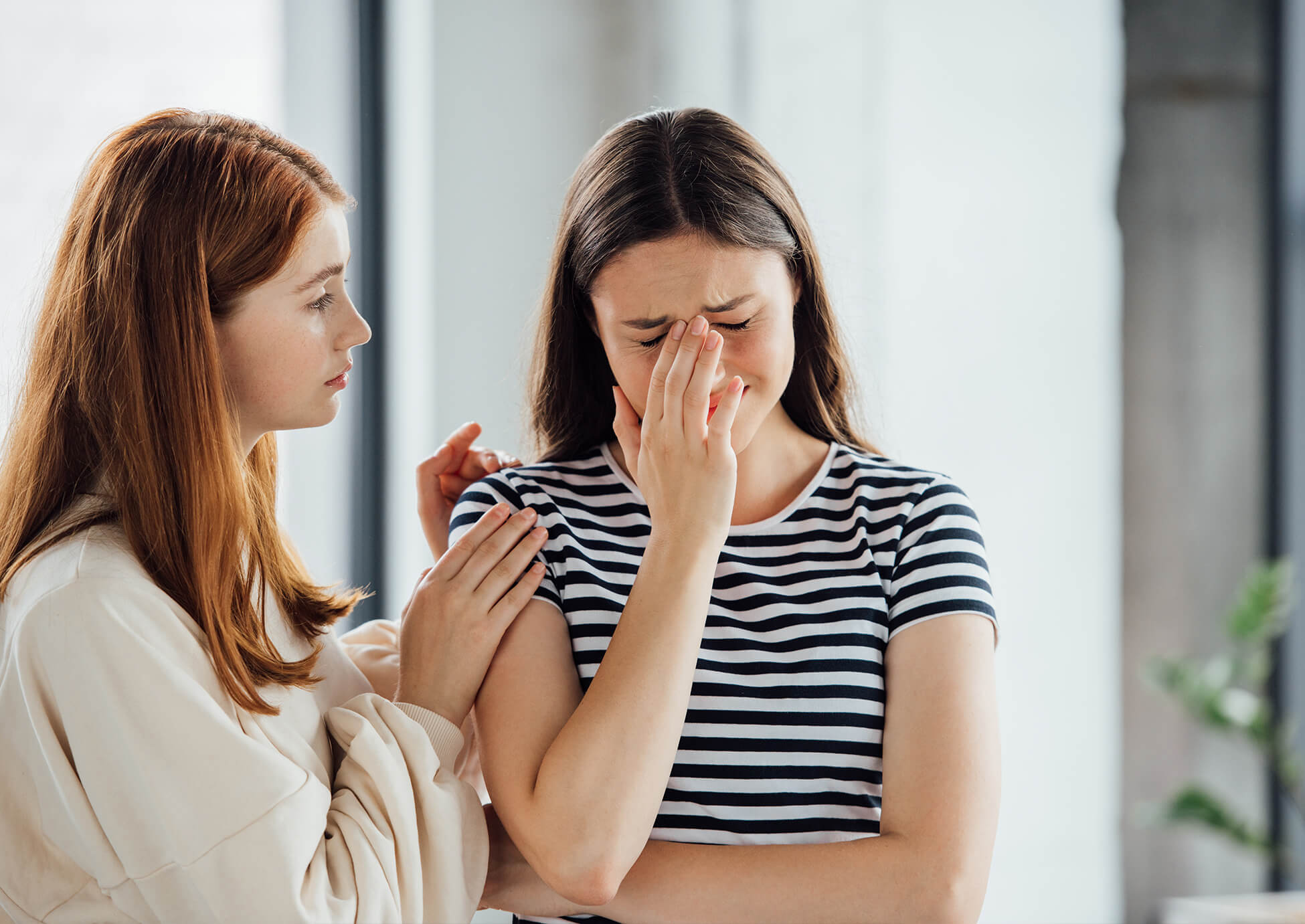Anxiety Amongst Teens, what can we do?
Before 2020, there had already been a noticeable increase in anxiety among teens. With the COVID-19 pandemic, the level of anxiety among teens has continued to increase significantly.
While this is concerning, there are things we can do. We can build our teens’ Positive Childhood |Experiences (PCEs) and teach them healthy and safe ways to cope with their emotions and challenging situations.

Janine Halloran
Coping Skills For Kids
Talk about feelings – name it to tame it
Why should we bother labeling our feelings? Clinical research has demonstrated that when you label your emotions, you can self-regulate more easily. In other words, it becomes easier to manage your feelings once you can identify them. As Dr. Dan Siegel and Dr. Tina Payne Bryson say, “When you name it, you can tame it.”
So how do we, as parents, help teens identify their feelings? Make it part of everyday conversation. At dinner, share how you feel, and encourage other family members to share their feelings. At first, it may feel strange, but the more you do it, the easier it will get. The hope is that everyone will get more comfortable labeling their feelings out loud, and your teen will share more with you over time.
By talking about feelings and offering a safe and supportive environment where we listen to our teens, we are creating a positive childhood experience for them.

Janine Halloran
Coping Skills For Kids
Janine Halloran is a Licensed Mental Health Counselor who has been working with children, teens, and their families for more than 20 years. She has been helping children and teens build their coping skills throughout her career in a variety of settings, including schools, mental health clinics and in her private practice. She founded Coping Skills for Kids to help children and teens learn healthy and safe ways to manage big feelings. She has written several books, including the bestselling Coping Skills for Kids Workbook, the Coping Skills for Teens Workbook and the Social Skills for Kids Workbook. She is also the host of the Calm & Connected Podcast. Her work has been featured in the Boston Globe, CNN, Huffington Post, and The Skimm® Newsletter. Janine lives in Massachusetts with her husband and two children.
Find a teen-friendly way to encourage deep breathing
When you get overwhelmed or in a state of anxiety or extreme worry, your autonomic nervous system goes into fight, flight, or freeze, which means your heart starts to race, your digestion slows down, and your breathing gets shallow. Deep breathing is a way to tell your body it’s time to switch back to rest and digest mode.
I like to try some teen-friendly ways to encourage deep breaths. Here are a couple of ideas that you and your teen might find helpful:
- Visualize the ocean – take a breath in as you imagine the ocean waves coming in, then breathe out as you imagine the ocean waves going out.
- Simple counting – breathe in one, breathe out two, breathe in three, breathe out four, etc.




Have some fun!
Play is a natural stress reliever for people of all ages, including teens. Just because they’re teens doesn’t mean they shouldn’t play anymore. Play and relaxation may look different than when they were younger, but they should still have time to give their brains a break, rest, and recharge.
Talk with your teen to help them figure out what they find enjoyable and relaxing. Some ideas of things they can do might be drawing, putting together a puzzle, playing board games, woodworking, calligraphy, knitting, doodling, etc. They can also move their bodies in fun ways by participating in sports, dancing, yoga, or walking in nature.
Once they’ve identified the ways they like to have fun, encourage them to do those fun things to give themselves and their brains a much-needed break!
Grow the circle of support
If your teen is struggling with anxiety and it’s not getting any better, it’s time to grow the community of adults around you to help support that teen. Reach out to their pediatrician and discuss your concerns. Talk to the school personnel to see what they’re noticing and find out what supports are available during the school day. Find an individual counselor who can help support your teen struggling with anxiety.
Having two non-parent adults who genuinely care is another positive childhood experience. Having a caring school counselor, educator, coach, or an individual therapist who gets your teen, connects with them, and listens to them helps protect their mental health.


The more positive childhood experiences, the better.
Research has shown that the impact of positive childhood experiences is dose-responsive. This means the more PCEs a child gets, the better their adult mental health is likely to be. By incorporating these strategies into your family life, you are helping them navigate the challenges of the teen years in safe and healthy ways and helping them grow into mentally strong adults.



Janine Halloran
Coping Skills For Kids
Janine Halloran is a Licensed Mental Health Counselor who has been working with children, teens, and their families for more than 20 years. She has been helping children and teens build their coping skills throughout her career in a variety of settings, including schools, mental health clinics and in her private practice. She founded Coping Skills for Kids to help children and teens learn healthy and safe ways to manage big feelings. She has written several books, including the bestselling Coping Skills for Kids Workbook, the Coping Skills for Teens Workbook and the Social Skills for Kids Workbook. She is also the host of the Calm & Connected Podcast. Her work has been featured in the Boston Globe, CNN, Huffington Post, and The Skimm® Newsletter. Janine lives in Massachusetts with her husband and two children.
Resources like these are provided by American SPCC – a national nonprofit dedicated to building positive childhoods for all children by empowering parents and caregivers with research-backed education and support.
This work is made possible by passionate donors and community advocates. Learn how you can get involved and support the mission here.
